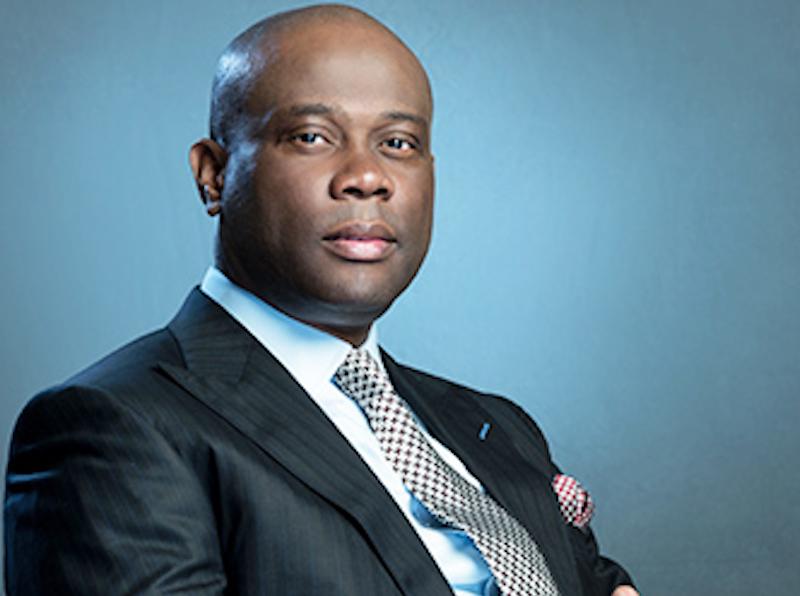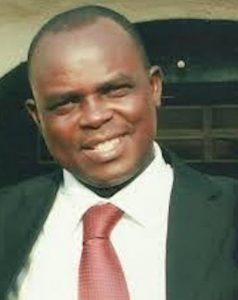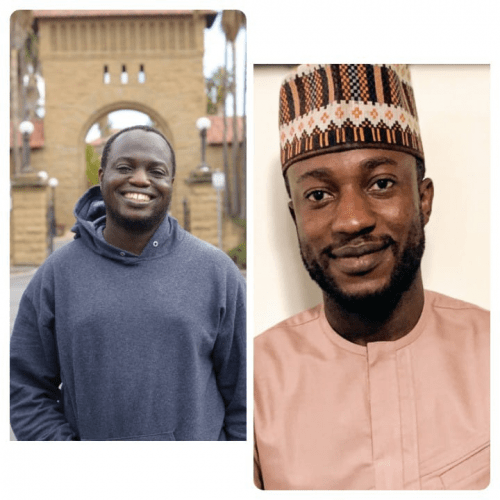By ETIM ETIM
It was the venerated writer, Chimanda Adichie, who first warned us against the destructive influences of a single story in her now famous 2009 TED talk. Many did not take her seriously and a lot more probably do not know the import of her lecture. She described a single story as an overly simplistic and generalised perception of a person, place or thing; a narrative that presents only one perspective, repeated again and again. Chimanda asserts that the danger of the single story is that it can result in perspectives based on stereotypes.
Since the tragic deaths of my boss, brother and friend, Dr. Herbert Wigwe with his wife and son in that air crash over two weeks ago, many Nigerians have been astounded by the torrents of single stories on Herbert dredged up and circulated on some social media platforms. The depth of people’s cruelty and depravity in spawning these falsehoods against an innocent man even in moments of immense tragedies and pain is unfathomable. They are out to inflict pain by fabricating lies and malicious propaganda against the dead. Their intention is to destroy the memory of the dead banker, inflict pain on his aged parents, business partners and damage the reputation of the businesses he left behind.
The most popular of these stories is about the acquisition of Intercontinental Bank by Access Bank in 2012. In public, the purveyors claim that Intercontinental was a healthy bank when it was bought and that the then CBN governor, Sanusi Lamido Sanusi, had orchestrated the sale as a favour to his friends. But in reality, these people are pained that Intercontinental is no longer available for them to plunder and steal from, and so, they resort to dissemination of malevolent attacks against the late Wigwe and his partner, Aigboje Aig-Imoukhuede, who is obviously in mourning.
I was a senior management staff of Access Bank when the Intercontinental acquisition happened, and so I know about the transaction very well. In 2008, the CBN conducted a stress test of all banks in the country and came up with a verdict that some banks were healthy, others not so healthy and a few very distressed. Intercontinental was severely distressed and was heading for a collapse. A further examination of the bank revealed a clear pattern of insider abuse and high-level frauds perpetrated by its directors and some members of senior management. The frauds were so massive that the bank’s shareholders’ funds were completely eroded, and its capital was in the negative.
In 2009, the CBN sacked Mr. Akingbola and the Board of the bank and replaced it with an interim board as part of the remediation and rescue plan for the bank. The interim board was mandated to fashion out a recapitalisation plan for the bank. But in late 2011, about two years after Akingbola and his board were sacked, the CBN put up the bank for sale when it was clear that a recapitalization was not feasible. In early 2012, the CBN approved Access Bank’s offer to take over the bank. In fact, even after the acquisition, Access Bank management discovered ‘’a far deeper hole’’ in the bank’s balance sheet than was previously revealed by the CBN’s examination and subsequent audit reports and due diligence.
In the years after his sack, Akingbola continued to face several court cases in UK and Nigeria in connection with his involvement in these insider abuses and frauds. I should note, at this point, that Mr. Akingbola is not the first Nigerian to lose a bank to insider abuse and fraudulent practices and Access Bank is not the first Nigerian bank to acquire another. Over 200 Nigerian banks have collapsed or been liquidated for severe capital impairment in the last 30 years or so. In July 2005, Tony Elumelu’s Standard Trust Bank merged with UBA and Union Bank was acquired by the Capital Alliance Group, while FCMB bought Finbank. There have been other mergers and acquisitions in the industry.
Akingbola’s legal troubles arising from his involvement in the collapse of Intercontinental are many. In December 2009, a Federal High Court sitting in Lagos granted a freezing injunction and attachment worldwide on all assets of Akingbola for total offences amounting to N346.185 million and £1.08 million. In July 2012, a Royal Court of Justice in London presided over by Mr. Justice Burton found Akingbola guilty of stealing and diverting billions of depositors’ funds and ordered him to repay more than £1 billion to the bank (Access Bank). He has also faced several charges from the EFCC. The acquisition of Intercontinental therefore arose from the mismanagement of the bank, the insider abuse and the fraudulent activities perpetrated by its directors. The transaction followed all due processes according to the laws of Nigeria and was approved by the courts and the regulatory authorities. If the CBN did not find a buyer for Intercontinental, the bank would probably have gone the way of Bank PHB and a few others that were not acquired and were on continued life support from the treasury. Thus, the purchase of Intercontinental by Access saved the nation a colossal waste of resources.

I have also read an article written by Mr. Muiz Banire, a senior advocate of Nigeria (SAN), in which he flippantly referred to the acquisition of Intercontinental by Access Bank as ‘’tilapia swallowing a whale’’. This is a misleading and false imagery purportedly indicating that Intercontinental was bigger than Access at the time of the transaction. In the first place, the financial strength of a bank is not all about the number of branches it has and the height of its headquarter building, which the public usually see. Rather, its strength is measured in terms of financial ratios, namely: efficiency ratio; profitability ratio; capital adequacy ratio; income-expenditure ratio; deposits and return ratios. These are not visible to the public and may not be understood by those who are not financially literate. Intercontinental’s ratios were in the red when the acquisition occurred. Its huge after-tax loss of N321 billion for the year ended September 2009 was one of the biggest in the industry then. On the other hand, Access Bank was then in its tenth year after it was taken over by Herbert and AigbojeAig-Imokhuede. It was very profitable and the ratios were very positive. Senior lawyers like Banire have a responsibility to speak with some knowledgeability, otherwise they would misrepresent their clients.
Another nasty and deceptive single story that emerged soon after the death of Herbert Wigwe was an article published recently by Tony Okoroji, a former President of Performing Musicians Association of Nigeria (PMAN), who now runs an organisation known as Copyright Society of Nigeria (COSON). In the article, Okoroji wondered how Herbert made so much money to establish a university and why he named the university after his family’s name. He wrote: ‘’I’m in the creative industry and can understand the pitfalls of unbridled self-promotion’’. He then went on to allege that Access Bank has refused to release funds in the account of COSON to him and that the ‘’bank has looked for every silly reason to hold onto our money’’.
First, how did Herbert make all the money to establish a university? Herbert is one of the major owners of Access Corporation, the holding company of the bank, and as a publicly quoted company, Access Corporation publishes the particulars of each director in its annual reports and audited accounts every year. This is a statutory requirement for all quoted companies. Such details include number of direct and indirect shares held by the director and the dividend payments received by each director and shareholder. This will give Okoroji an idea of the man’s wealth if he cares to review the bank’s latest annual reports. In addition, Herbert’s family also has interests in other businesses, including construction. Why did Herbert name the university after his family? This is as silly a question as it can get. Organisations and institutions are named after their founders as a mark of honour or memorabilia to the memory of the founder or the family. Herbert is proud of the Wigwe family he hailed from, and the university was appropriately named to give honour to the family, just as Harvard (the oldest institution of higher learning in the US is named after John Harvard); Yale (named after Elihu Yale); Obafemi Awolowo University; Ahmadu Bello University, Nnamdi Azikiwe University, etc are named after great personalities. Many others across the globe like Albert Ludwig University, Freiburg, Germany; Aga Khan University, Karachi, Pakistan; Alice Lloyd College, Kentucky, US; Anglia Ruskin University, Cambridge, England and Gregory University, Uturu, Abia State, among many others, are named after their founders.
Tony Okoroji’s claim that Access Bank has deliberately withheld COSON’s funds is a deliberate fabrication and obfuscation of information just to hoodwink the public and impugn the characters of those involved. The fact is that some members of COSON – Premier Music, Ivory Music and Pretty Okafor – have sued COSON and the bank seeking to restrict the accounts of COSON. The case is still in court, and as a senior lawyer in Access Bank’s Legal Department told me, ‘’in keeping with the legal doctrine of Lis Pendis, the bank as a responsible corporate citizen cannot take any steps that will tie the hands or foist a fait accompli on the court’’. In other words, the bank cannot release the funds until the litigation is over. But Okoroji did not tell his readers that there is a pending case in court involving the accounts of the association. Rather, he blamed the late Herbert Wigwe for the delay in releasing his money and insinuated that the deaths of Herbert and another staff of the bank who died in December was a punishment from God for the bank’s delay in releasing the money. How mean-spirited can people be?
Finally, Herbert is no longer with us, and he cannot defend himself against all these baseless and putrid stories deliberately churned out to defame him and his legacy and traumatise his family and business associates. May God forgive those who are perpetrating these evil deeds and may the souls of Herbert Wigwe; his wife, Chizoba; son, Chizzy; and his friend, Abimbola Ogunbanjo, who died with him rest in peace. Amen.
Etim Etim, journalist and member Editorial Board of Guardian at some point, was Senior Manager at Access Bank and was also the Head Corporate Affairs at NAL Merchant Bank…


















